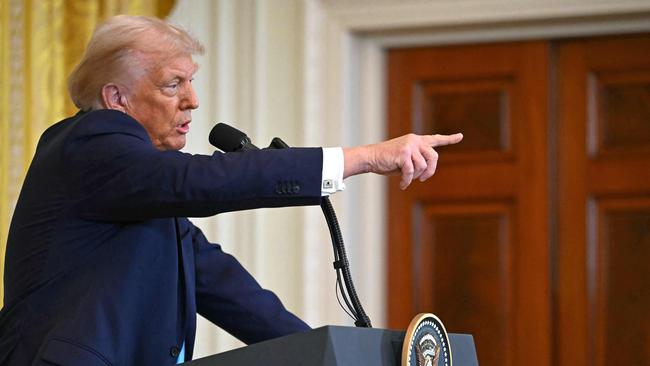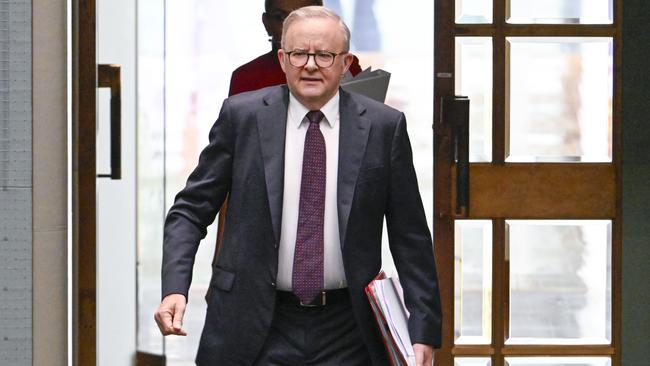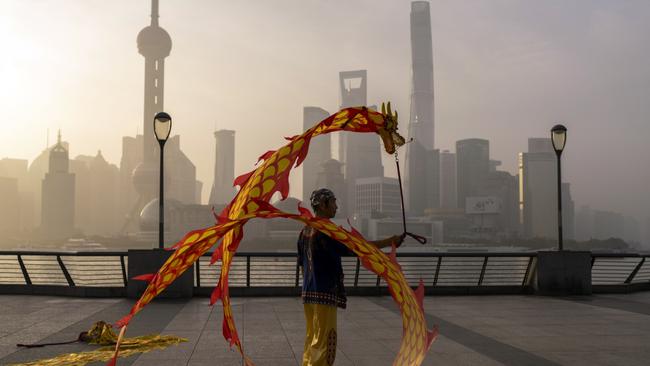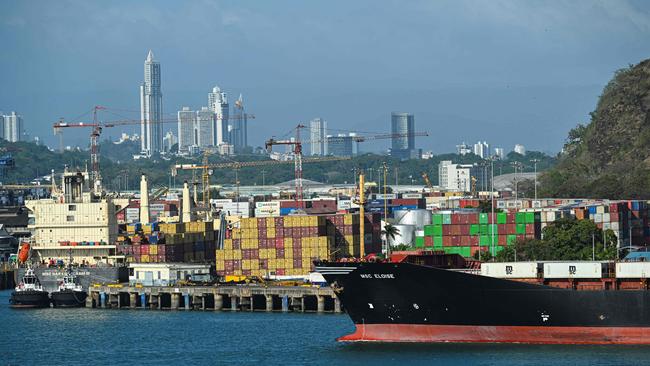Trade deficit no longer sufficient to avoid Donald Trump’s tariffs

Donald Trump imposing tariffs is not a violent act like war, but it is coercive and designed to achieve strategic effects. The last time he assumed power, Australia won in that we were spared tariffs against steel and aluminium exports to the US.
Trump is back with a vengeance. He has already increased tariffs against China and levied tariffs against Canada and Mexico, even if these have been put on hold for one month.
As Malcolm Turnbull did in 2018, an anxious Anthony Albanese is asking representatives to remind the Trump administration that the US has long enjoyed a current account surplus with Australia. Trade Minister Don Farrell is desperate to meet with his American counterpart to pass on this message.
This reaction is understandable. But it does feel like the Albanese government is fighting the last war regarding our diplomatic response. Trump’s reasoning for imposing tariffs has evolved. Simply reminding Trump we buy more from the US than it sells to us will no longer do the trick.
Trump was obsessed with American trade deficits during his first term. From his perspective, a deficit with another country is a net loss for the US because it means American multinationals and foreign firms are benefiting at the expense of American companies and workers – all the while hollowing out the domestic industrial and manufacturing base.
His obsession with trade deficits remains. The good news is that in addition to the US having a current account surplus, Australia is not a significant manufacturing economy that could be accused of harming American works or its industrial/manufacturing base. Talented Australians working abroad create significant value for the American economy.

Unfortunately, Trump’s tariffs are no longer just about correcting trade deficits. Empowered and energised by the stunning election result, Trump is more confident and powerful than he was in 2017. More than just the defender of the working and middle classes who supported the Republicans in droves, he is there to reshape America’s place and role in the world – and how it deals with allies and enemies alike.
It is not isolationism, as Trump still sees America as the leader of the free world. But all other nations will be compelled to pay their dues and meet their obligations to address what Trump sees as free riding.
Taking an expansive view of what free riding entails, there is a price to be paid if other nations seek US protection or access to the world’s largest economy and most dynamic pool of talent. And tariffs are considered the most effective form of nonviolent coercion and compulsion against these so-called free riders.
It is already clear that tariffs are being threatened or imposed to achieve a multiplicity of effects. Against China, it is largely about geopolitical competition, for example to keep the US ahead economically and technologically and accelerate the shift of global drive supply chains away from China. Against Mexico, and to a lesser extent Canada, it is to force these countries to stem the flow of illegal migrants and fentanyl into the US.

The point is that if Trump is dissatisfied enough with any country for any reason, threatening tariffs is becoming his reflexive tactic to punish, coerce and compel change.
Does Trump seek to punish Australia, and are there policies that annoy him enough for him to demand change? Of course, one can only speculate. But the good feelings towards Australia he developed during the first term won’t count for much. There was no evidence he dislikes Canadians, but that didn’t help Justin Trudeau. In terms of personal animosity, our current government begins from a poor place because negative comments in the past made about Trump by ambassador Kevin Rudd and the Prime Minister are known in the White House.
More important are current Australian policies that raise the ire of some key national security people in the Trump administration. Albanese might deny it is happening, but the more passive approach towards China has been disapprovingly noted, as has our government encouraging exporters to rush back into the Chinese market with eyes wide shut.
I do not believe Trump has an inherent problem with AUKUS, but he does think the agreement is in Australia’s favour. That’s acceptable so long as Australia keeps to its spending commitments rather than delay these until a future and indeterminate time. His administration assesses AUKUS only in terms of whether it enhances collective capability to deter or win a war. It cannot be a job creation scheme for Australians. Trump will demand clarity from Albanese as to Australia’s role in potential contingencies in northeast Asia. He won’t respond well to ambiguity from an ally dependent on American blood and treasure for protection.
Any one of these issues could set Trump off. Australian and American governments have always disagreed about many things. In the past, most of these were aired behind closed doors. It now comes with the threat of tariffs. How will Farrell respond if these differences are raised? Merely repeating talking points about a trade deficit with America will no longer be enough under Trump 2.0.
Dr John Lee is a senior fellow at the Hudson Institute in Washington DC. From 2016-18, he was senior adviser to the Australian foreign minister.




It was the French prime minister Georges Clemenceau who made famous the aphorism that “generals always prepare to fight the last war, especially if they won it”.